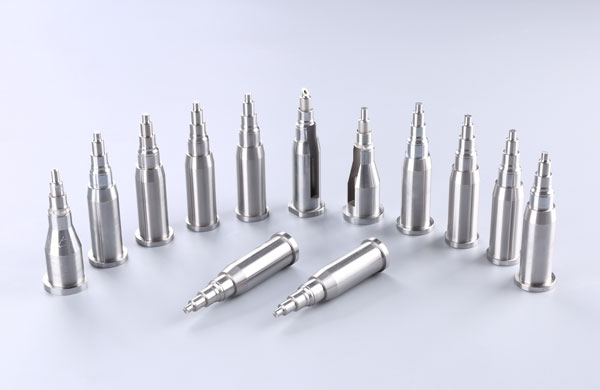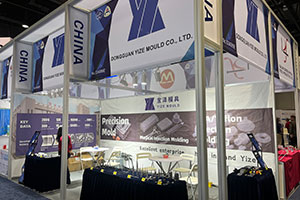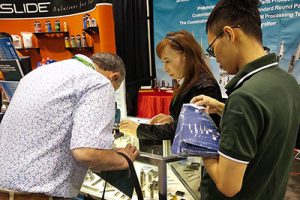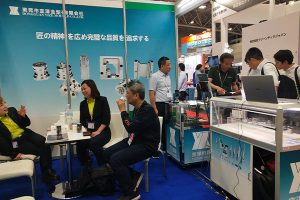Tungsten Carbide with Non-Magnetic Properties: Characteristics, Processing, Applications, and Future Development
I. Introduction In the realm of modern industrial materials, tungsten carbide with non-magnetic properties is emerging as a focal point due to its unique characteristics and wide range of applications. […]
I. Introduction
In the realm of modern industrial materials, tungsten carbide with non-magnetic properties is emerging as a focal point due to its unique characteristics and wide range of applications. As a special type of hard alloy, it is free from magnetic interference because it does not contain ferromagnetic materials, playing an indispensable role in numerous fields. This article will provide a comprehensive analysis of tungsten carbide with non-magnetic properties, covering its definition, characteristics, manufacturing process, application areas, and future trends.
Our factory business: carbide parts, mold parts, medical injection molds, precision injection molds, teflon PFA injection molding, PFA tube fittings. email: [email protected],whatsapp:+8613302615729.
II. Definition of Tungsten Carbide with Non-Magnetic Properties
Tungsten carbide with non-magnetic properties, abbreviated as non-magnetic tungsten carbide, is a type of tungsten carbide that does not magnetize in a magnetic field. Its magnetic permeability is much lower than that of air, exhibiting non-magnetic or weakly magnetic properties. This new type of hard alloy is produced through powder metallurgy techniques and sintered in a high-temperature vacuum environment, primarily composed of refractory metal carbides and iron-group transition metals. The carbide hard phase imparts its high hardness and wear resistance.
III. Characteristics of Tungsten Carbide with Non-Magnetic Properties
- Non-magnetic or Weakly Magnetic: Remains stable in magnetic environments without magnetization.
- High Hardness and Wear Resistance: Maintains excellent performance even under harsh conditions.
- Excellent Bending Strength: Unique manufacturing process enables it to withstand significant external forces.
- Good Corrosion Resistance: Strong resistance to acidic and alkaline corrosive media.

IV. Manufacturing Process of Tungsten Carbide with Non-Magnetic Properties
The manufacturing of tungsten carbide with non-magnetic properties employs powder metallurgy techniques. Raw materials such as carbides and binders are mixed and ball-milled to produce a uniform alloy powder. Through precisely controlled sintering processes, dense alloy materials are formed. By adjusting sintering parameters, tungsten carbide with different grain sizes and properties can be obtained.
V. Application Areas of Tungsten Carbide with Non-Magnetic Properties
Tungsten carbide with non-magnetic properties shines in multiple fields due to its unique properties:
- High-Precision Manufacturing: Such as battery mold burners, tungsten-molybdenum clamps, and glass cutting tools.
- Electronics Manufacturing: Suitable for non-magnetic or low-magnetic environments, such as SUS 20431 materials.
- Medical Device Manufacturing: Particularly used in MRI and other applications requiring non-magnetic materials.
- Military and Aerospace: Manufacturing special protective layers with strong magnetic permeability and no magnetic interference.
- Watch Manufacturing: Ensures accuracy in magnetic environments.
- Other Fields: Construction, electricity, electronics, chemical industry, rail transportation, and metal processing.
VI. Future Development of Tungsten Carbide with Non-Magnetic Properties
With technological advancements and industrial development, the application areas of tungsten carbide with non-magnetic properties will continue to expand. The emergence of new materials and technologies will further enhance its performance, while increased awareness of environmental protection and energy conservation will drive its application in environmentally friendly and energy-saving areas. In the future, tungsten carbide with non-magnetic properties is expected to demonstrate its unique advantages in more fields.
VII. Conclusion
As a special type of hard alloy material, tungsten carbide with non-magnetic properties plays a vital role in multiple fields due to its non-magnetic or weakly magnetic properties. Produced through powder metallurgy techniques, it possesses numerous excellent characteristics and is widely used in various industries. Looking ahead, the application areas of tungsten carbide with non-magnetic properties will further expand, and its performance will continue to improve and optimize.






